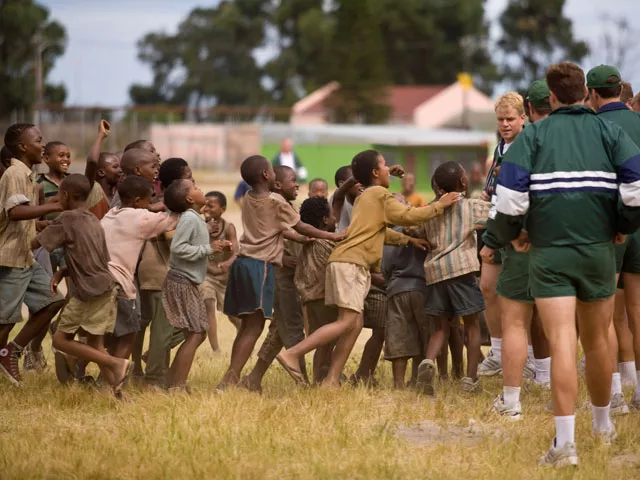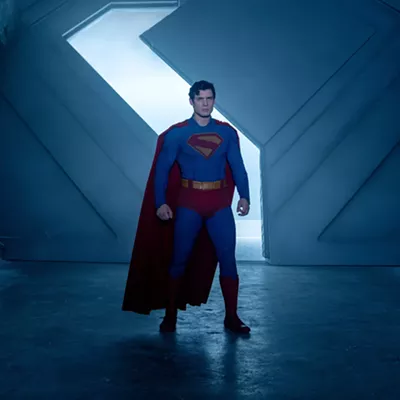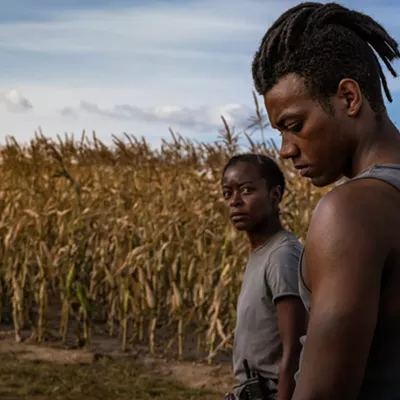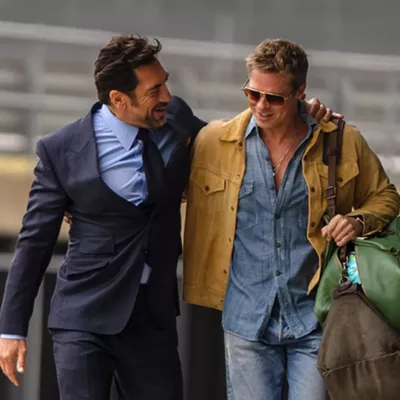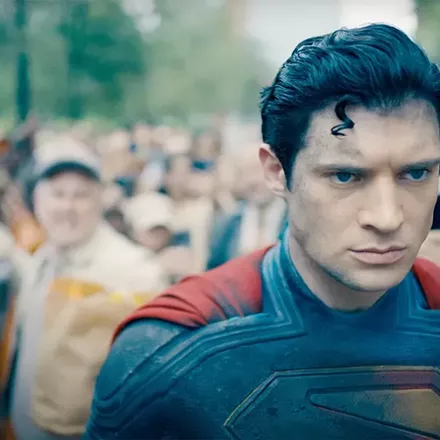Hoorah! Nelson Mandela united South
Africans, black and white, and overcame
their long-held suspicions and hatred
and bigotries in the post-apartheid upheaval by
getting them to refocus their hate on Australia
and New Zealand. Or at least on their stupid
rugby players. Hoorah!
Oh, but I kid, Invictus, because you made me care.
I don’t give a jock strap which national rugby team won the World Cup in 1995. And yet there I was, sobbing like a baby over this movie, wondering where I might learn how to sing the South African national anthem.
Of course, it’s not really about rugby at all,
this elegant, deeply affecting film: it’s about
people’s capacity to change, which every once in
a rare while — as in the
surprisingly un-disastrous
South African revolution
— turns out to actually
exist. Based on the book
Playing the Enemy by John
Carlin, a British journalist who befriended Nelson
Mandela during his release from prison and
ascension to the South African presidency, Invictus
is a marvel of a portrait of a moment in time
when things could have gone badly wrong but
for the quiet, determined leadership that showed
everyone another way. Morgan Freeman inhabits
Nelson Mandela here as a force of nature, but a
placid one, though such a thing sounds impossible.
On the day he takes offi ce as president, he
pushes his black security team to work with the
white special forces offi cers who’d protected the
outgoing white president, because he doesn’t
want those who represent him to refl ect only one
color, one language or one culture.
The mistrust and the anger among these
two teams of bodyguards seems like nothing,
however, next to the task that consumes this
film: Mandela’s quest to get black South Africans
to accept the Springboks, a hated emblem of
Afrikaner rule, as their own, as a way to let the
Afrikaner minority see themselves as still South
African too. Mandela buddies himself up with
the Springbok captain, Francois Pienaar (Matt
Damon, rocking a South African accent and
bulked up to rugby size), and starts to work his
mellow magic on the white boy, urging
him on — without ever saying so — to
lead the team to a victory in the World
Cup, a year away. It’s a tall order, not
just getting all of South Africa to accept
the team, but getting the team
in shape to win: they’re not very
good as Mandela’s taking office...
But the sports-averse needn’t
fear: this isn’t a movie about practice
sessions and pep talks — unless
you want to consider Mandela’s
gentle persuading of South Africans
to let the past go as a national pep
talk, or hell, even one suitable for the
whole planet. Freeman is as magnetic
as Mandela, and the magic works
on us, too:
the unforced
grace of Anthony
Peckham’s script and
Clint Eastwood’s
direction lets the
optimism of Mandela’s perspective —
which can sound hopelessly naive,
given what we know of human nature
— end up feeling like the most obvious
thing in the world. Like, why
didn’t someone think of this before?
(People have, of course, but we
so rarely see it in action, and so
successfully.)
Which isn’t to say, either, that when Mandela walks out on the rugby pitch to wish the Springboks luck in that fi nal World Cup game, and the mostly white crowd — the same people who believed their country was going to the dogs with Mandela’s release — chants his name, that it doesn’t feel like fantasy. Hopeful, powerful, stirring fantasy, but fantasy nonetheless. If this happened once, why can’t it happen some more?

